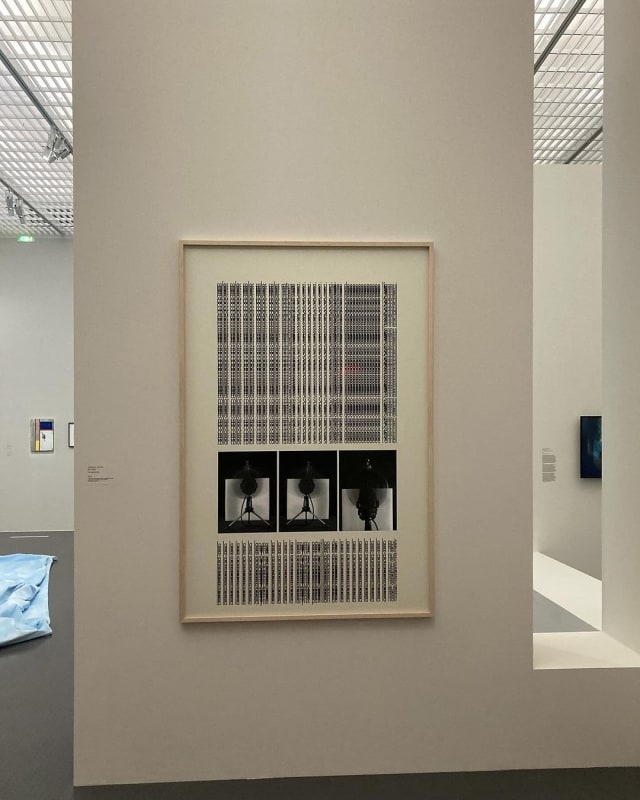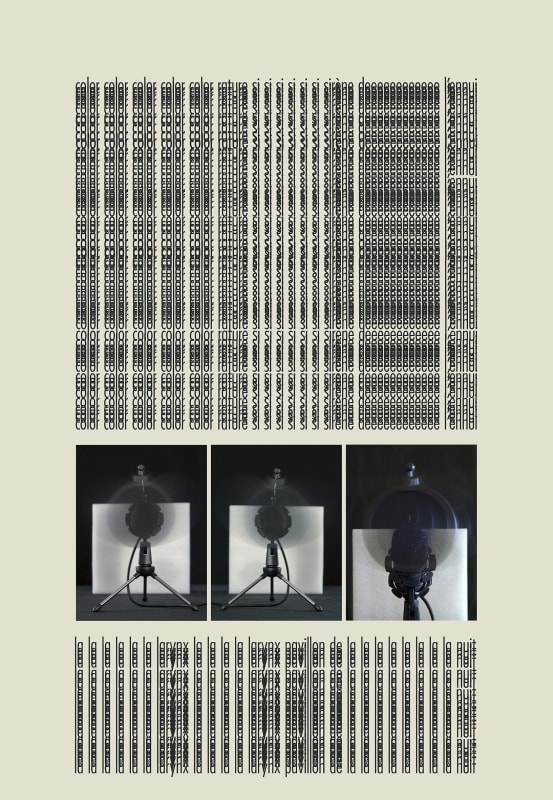We are pleased to annonce Suzanne Lafont's participation in Lacan, the exhibition. When Art Meets Psychoanalysis at Centre Pompidou-Metz. Curated by Marie-Laure Bernadac and Bernard Marcadé, art historians, in association with Gérard Wajcman and Paz Corona, psychoanalysts.
About La cantatrice:
Il s’agit d’une parodie de l’air de la Reine de la nuit dans La Flûte enchantée de Mozart : air de référence de la voix colorature.
Les paroles de la « chanson » tiennent en deux lignes répétées :
ligne 1 :
– color color color color color rature si si si si si si si sirène deeeeeee l'ennui
la phrase est répétée/bégayée : on ignore s’il s’agit du disfonctionnement de la voix ou de l’appareil
ligne 2 :
– la la la la la la larynx la la la la la la larynx pavillon de la la la la la la la nuit
la phrase est répétée/bégayée : même effet produit
La proposition est assez fortement inspirée d’un récit de Kafka Joséphine la cantatrice ou Le Peuple des souris.
Le titre s’appuie sur la sonorité des mots.
— Suzanne Lafont
About Lacan, the exhibition. When Art Meets Psychoanalysis:
Jacques Lacan's (1901 - 1981) ideas are, alongside the work of Roland Barthes, Michel Foucault, Jacques Derrida and Gilles Deleuze, essential for understanding our modernity. Lacan was closely involved with 20th-century art and artists, and in his teaching never ceased to draw on the art of all times. His discourse on art has been as fresh as it has been unusual, holding back, intriguing and provoking many contemporary artists. He has interpreted artworks not just as powers that give us something to see, but as dazzling objects that look back at the viewer. In devoting an exhibition to Jacques Lacan, Centre Pompidou Metz wanted to surround this fascinating figure with a multitude gazes.
All this is far removed from a psychoanalytical interpretation of artists. The psychoanalyst is quite the opposite of a master: he or she is a student of art, docile to art's original truths, and aiming to decipher the previously unsuspected knowledge it contains. That is why this exhibition is not only a homage to psychoanalysis: it also celebrates what remains behind, after all elucidation, of the mystery of art. Lacan, at the end of his life, saw things no differently.
Lacan opened up an innovative space that is at the heart of our modernity and of our contemporary experience. Today we are debating issues of sex, love, identity, gender, power, belief or disbelief, all questions for which the psychoanalyst provided precious reference points.
The visit should be seen and experienced as a journey through specifically Lacanian notions, beginning with the mirror stage, which has fascinated so many artists and film-makers. Next, the exhibition evokes the concept of Lalangue, a word invented by Lacan to describe a form and function of language that is more closely linked to what the psychoanalyst called the Real, and which echoes the work of artists who have played with words, double meanings, babbling and even the language of birds, while not forgetting its links with poetry.
Centre Pompidou-Metz
December 31 - May 27, 2024
Galerie 2 - 1 Parv. des Droits de l'Homme, 57020 Metz
January 30, 2024

